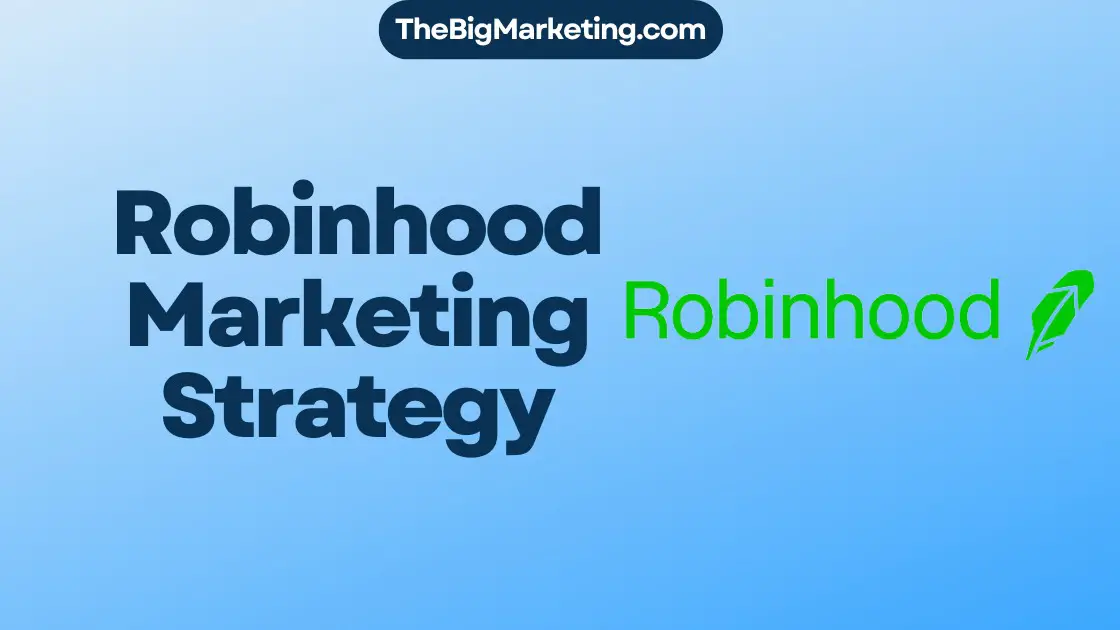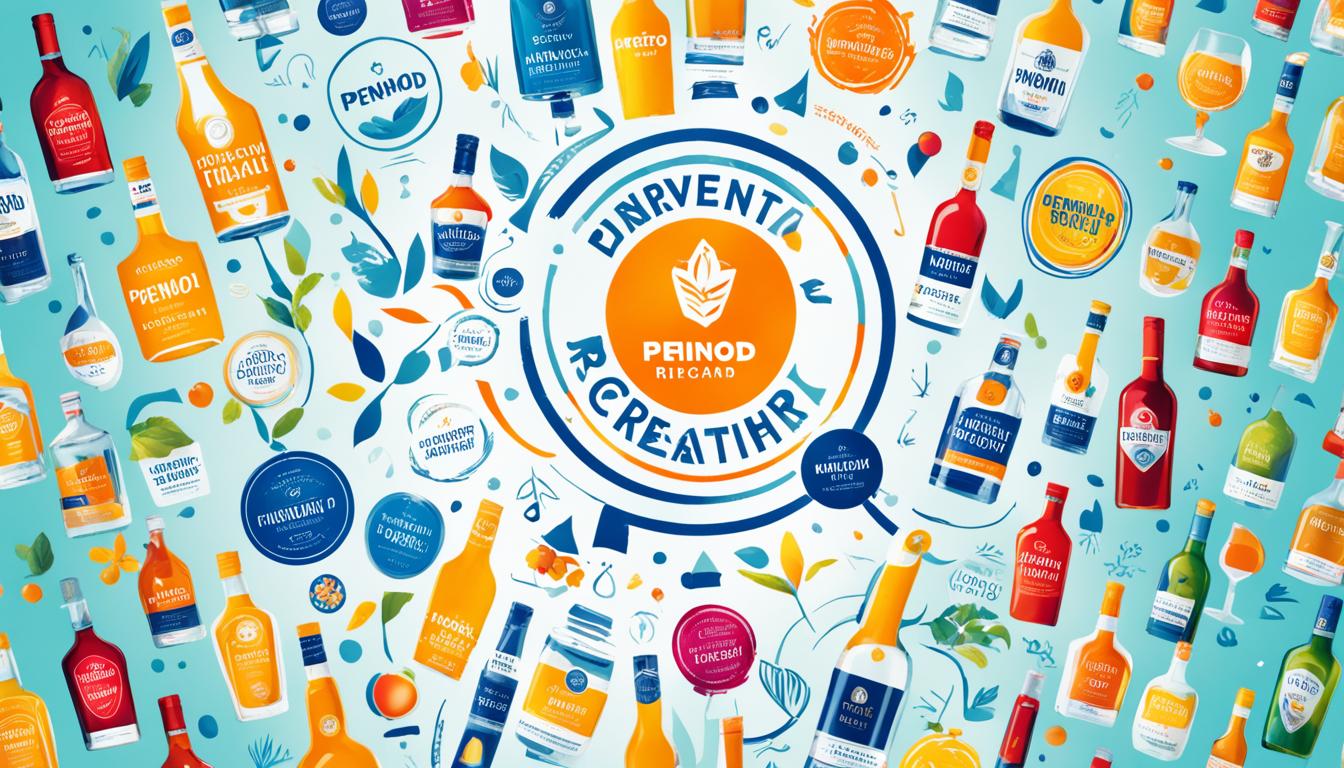PepsiCo, Inc. is a multinational food, snack, and beverage corporation that has solidified its position as a dominant player in the global consumer market. With a diverse portfolio of 23 brands generating over $1 billion in annual sales, PepsiCo faces fierce competition from several major players in the industry.
When it comes to rival companies and pepsico competitors, three major names stand out: The Coca-Cola Company, Mondelez International, and Nestlé. These companies are among the key players challenging PepsiCo’s market share and pushing the competitive landscape of the industry.
The Coca-Cola Company, PepsiCo’s beverage industry counterpart, is known for its legendary cola products such as Coca-Cola and Diet Coke. The company engages in the intense “cola wars” against PepsiCo, investing heavily in marketing campaigns and innovative strategies to maintain and expand its market presence. While Coca-Cola mainly focuses on carbonated beverages, PepsiCo’s portfolio extends to include a broader range of products like snacks, juices, and sports drinks.
Meanwhile, Mondelez International, a major player primarily recognized for its confectionery products, also competes head-to-head with PepsiCo in the beverage sector, particularly in North America. Mondelez boasts popular brands like Cadbury and Oreo, while PepsiCo brings its well-known lineup of beverages such as Pepsi, Mountain Dew, and Gatorade to the competition. This rivalry fuels both companies’ drive for market share through marketing, distribution, and continuous product innovation in the dynamic beverage market.
Nestlé, a multinational food and beverage conglomerate, presents another formidable challenge to PepsiCo in the food and snack industry. Nestlé’s extensive product portfolio includes globally recognized brands like Kit Kat and Nescafé. In the food and snack category, Nestlé directly competes with PepsiCo, particularly in snacks, cereals, and convenience foods. The battle for consumer preferences and market share leads both companies to focus on product innovation, impactful marketing strategies, and efficient distribution channels.
PepsiCo’s competitive landscape also encompasses Anheuser-Busch InBev SA/NV (AB InBev), a major rival in the beverage industry. AB InBev, known for its beer brands like Budweiser and Stella Artois, competes directly with PepsiCo’s wide range of non-alcoholic beverages. Both companies continuously strive to capture market share by offering products that cater to diverse consumer preferences. AB InBev’s expertise in the beer market and PepsiCo’s dominance in non-alcoholic beverages create an energetic rivalry within the beverage industry.
Procter & Gamble (P&G), a consumer staples giant, also enters the competition as a significant PepsiCo competitor. P&G, famous for household and personal care brands like Tide, Pampers, and Gillette, competes against PepsiCo in the beverage market. PepsiCo’s well-known and diverse portfolio, consisting of beverages and snacks, poses a formidable challenge to P&G’s market presence. Both companies focus on marketing, distribution, and product innovation to maintain and expand their market shares.
Two food and snack industry powerhouses, Mondelez International and Philip Morris International (PM), further intensify the competition for PepsiCo. PM, primarily known for its tobacco products, also competes with PepsiCo in the beverage market. PM’s portfolio includes renowned brands like Marlboro and L&M, while PepsiCo offers a range of non-alcoholic beverages and snacks. These companies rely on marketing, distribution, and innovative product offerings to capture consumer attention and secure their positions in the market.
Unilever, a global consumer goods company, represents yet another competitor challenging PepsiCo’s position across various categories, including the food and beverage sector. Unilever’s extensive portfolio includes brands like Knorr, Magnum, and Lipton, while PepsiCo offers a diverse range of beverages and snacks. Both companies heavily invest in marketing initiatives, distribution efforts, and ongoing product innovation to capture consumer preferences and gain market share.
Colgate-Palmolive, primarily known for its oral care and personal hygiene products, steps into the competition as a substantial PepsiCo competitor in the consumer staples sector. While Colgate-Palmolive primarily focuses on its renowned brands like Colgate, Palmolive, and Ajax, the company also competes with PepsiCo in the beverage market. PepsiCo’s non-alcoholic beverage offerings and snacks provide consumers with alternative choices alongside Colgate-Palmolive’s household brands. Marketing strategies, distribution channels, and continuous product innovation drive both companies forward in the effort to seize market share.
In conclusion, PepsiCo faces robust competition from various companies in the food, snack, and beverage industry. The competitive landscape features prominent players such as The Coca-Cola Company, Mondelez International, Nestlé, Anheuser-Busch InBev SA/NV, Procter & Gamble, Philip Morris International, Unilever, and Colgate-Palmolive. These companies relentlessly compete for market share through product innovation, carefully crafted marketing strategies, and effective distribution channels. Despite the challenges, PepsiCo’s diverse portfolio of brands and global presence has allowed it to establish a significant foothold in the industry. However, the continuous battle with its competitors remains a constant test of PepsiCo’s strengths and strategies.
The Coca-Cola Company
The Coca-Cola Company is one of PepsiCo’s primary competitors in the beverage industry. Known for its iconic cola products like Coca-Cola and Diet Coke, Coca-Cola competes closely with PepsiCo in the “cola wars.” Both companies invest heavily in marketing campaigns and innovation to maintain and expand their market presence.
While Coca-Cola focuses primarily on carbonated beverages, PepsiCo has a broader portfolio that includes snacks, juices, and sports drinks.
In recent years, both The Coca-Cola Company and PepsiCo have faced challenges from consumers looking for healthier beverage options. As a result, both companies have expanded their offerings to include low-calorie and sugar-free options to cater to changing consumer preferences.
The Coca-Cola Company also operates in various other segments, including juices, iced teas, and energy drinks. The company’s diverse product portfolio helps maintain its position as one of the major competitors in the industry. Their commitment to sustainability and corporate social responsibility aligns with evolving consumer demands.
Overall, the competition between The Coca-Cola Company and PepsiCo drives innovation and brings diverse beverage options to consumers, allowing them to choose products that best suit their preferences and lifestyles.
Mondelez International
Mondelez International is a prominent competitor in the food and beverage industry, known for its confectionery products. While Mondelez is primarily recognized for brands like Cadbury and Oreo, it also competes with PepsiCo in the beverage sector, particularly in North America.
PepsiCo, on the other hand, boasts a broader beverage portfolio, including popular brands like Pepsi, Mountain Dew, and Gatorade. Both companies are constantly striving to capture market share through effective marketing strategies, widespread product distribution, and continuous product innovation within the highly dynamic beverage market.
With their comprehensive product lines and strong brand recognition, Mondelez and PepsiCo are engaged in a competitive battle to secure consumer preferences and solidify their positions in the industry. These fierce rivals meticulously analyze market trends, consumer demands, and emerging opportunities to stay ahead of their respective market challengers.
The rivalry between Mondelez International and PepsiCo exemplifies the intense competition within the beverage sector, driven by each company’s strategic initiatives and commitment to delivering quality products that meet consumer expectations. The ultimate goal for both companies is to gain a competitive edge in the market while continuously expanding their customer base and achieving sustainable growth.
Nestlé
In the highly competitive food and snack industry, Nestlé, a multinational food and beverage conglomerate, emerges as a significant rival for PepsiCo. With a diverse product portfolio, Nestlé boasts globally recognized brands like Nestlé, Kit Kat, and Nescafé. PepsiCo finds direct competition from Nestlé in the snacks, cereals, and convenience foods categories. To stay ahead in the market, both companies prioritize key factors such as product innovation, strategic marketing, and effective distribution channels, aiming to capture consumer preferences and gain a larger market share.
Amidst the food and snack industry’s cutthroat competition, Nestlé stands as a formidable adversary for PepsiCo. Its vast range of products and established brands ensures that Nestlé stays on par with PepsiCo and strives to surpass it. Both companies continually invest in advancing their respective product lines to meet the ever-changing consumer demands.
Anheuser-Busch InBev SA/NV
Anheuser-Busch InBev SA/NV (AB InBev) is a major competitor for PepsiCo in the beverage industry. Known for its beer brands like Budweiser and Stella Artois, AB InBev competes with PepsiCo’s portfolio of non-alcoholic beverages. Both companies strive to capture market share by offering a wide range of products that cater to diverse consumer preferences. AB InBev’s expertise in the beer market and PepsiCo’s strength in non-alcoholic beverages create a competitive landscape in the beverage industry.
Procter & Gamble
Procter & Gamble (P&G) is another major competitor for PepsiCo, operating in the consumer staples sector. While P&G is primarily known for its household and personal care products, it also competes with PepsiCo in the beverage market. P&G’s portfolio includes brands like Tide, Pampers, and Gillette, while PepsiCo offers a range of beverages and snacks. Both companies focus on marketing, distribution, and product innovation to maintain and expand their market shares.
In the consumer staples sector, Procter & Gamble is a force to be reckoned with. With its extensive range of household and personal care products, the company competes head-to-head with PepsiCo. P&G has built a strong reputation over the years, offering trusted brands like Tide, Pampers, and Gillette. These products cater to the everyday needs of consumers, creating a competitive landscape for PepsiCo in the consumer staples market.
In addition to its household and personal care offerings, P&G also enters the beverage market, challenging PepsiCo’s presence. While PepsiCo has a diverse beverage portfolio, P&G utilizes its marketing prowess to position its brands effectively. By leveraging its existing customer base and distribution channels, P&G strives to capture market share in the competitive beverage industry.
Like PepsiCo, Procter & Gamble understands the importance of marketing, distribution, and product innovation. By constantly adapting and improving their offerings, both companies aim to meet the ever-changing needs and preferences of consumers. This intense competition drives the industry forward, pushing PepsiCo and Procter & Gamble to remain at the forefront of the consumer goods market.
Mondelez International
Mondelez International is a major player in the food and snack industry, known for its iconic confectionery brands like Cadbury and Oreo. As one of the competitors to PepsiCo, Mondelez directly challenges PepsiCo’s snack division for market share. With a focus on product innovation, marketing strategies, and efficient distribution channels, Mondelez aims to stay ahead of its rivals in the dynamic and competitive food and snack market.
Mondelez International’s success rests on its ability to create beloved and recognizable brands that resonate with consumers around the world. Cadbury’s rich and creamy chocolates, along with Oreo’s iconic sandwich cookies, have become household favorites, fueling Mondelez’s growth and market presence.
The Competitive Landscape
Mondelez competes head-to-head with PepsiCo in the snack category, vying for consumers’ attention and loyalty. This rivalry extends beyond just chips and cookies, as both companies constantly innovate to introduce new flavors, formats, and packaging to capture a larger share of the market. Mondelez’s commitment to satisfying consumer preferences and continuously improving its products fuels the intense competition between these industry giants.
Furthermore, Mondelez’s global reach and extensive distribution network enable its products to be widely available across various markets. This broad coverage puts Mondelez in direct competition with PepsiCo, which also boasts an extensive distribution network and global presence.
Major Competitors of Mondelez
While Mondelez thrives on its brands’ popularity and strong consumer following, it faces considerable competition from other major players in the food and snack industry. Some of Mondelez’s key competitors and market challengers include:
- Kraft Heinz Company
- Nestlé
- General Mills
- Kellogg Company
- Hershey Company
These companies pose significant challenges to Mondelez’s market position, driving innovation and pushing the boundaries of taste and product quality.
As competition continues to intensify in the food and snack industry, Mondelez International remains vigilant and responsive to evolving consumer preferences. With its commitment to innovation, robust brand portfolio, and global distribution network, Mondelez aims to maintain its position as a formidable competitor to PepsiCo and other market players.
Philip Morris International
Philip Morris International (PM) is a major competitor for PepsiCo in the consumer staples sector. While PM is primarily known for its tobacco products, it also competes with PepsiCo in the beverage market. PM’s portfolio includes brands like Marlboro and L&M, while PepsiCo offers a range of non-alcoholic beverages and snacks. Both companies focus on marketing, distribution, and product innovation to maintain and expand their market shares.
Philip Morris International (PM) is a global leader in the tobacco industry, with a strong presence in numerous markets worldwide. Its well-known brands, such as Marlboro, have a significant market share and a loyal customer base. However, PM also competes with PepsiCo in other sectors.
While PepsiCo is widely recognized for its food, snack, and beverage offerings, including brands like Lay’s, Gatorade, and Tropicana, the company also competes with PM in the beverage market. PepsiCo’s portfolio of non-alcoholic beverages, such as Pepsi, Mountain Dew, and Lipton, provides healthy competition for PM’s tobacco products.
Both PM and PepsiCo are focused on marketing strategies to capture consumer attention and loyalty. PM leverages its iconic cigarette brands and engages in targeted promotional campaigns to maintain its market position. In contrast, PepsiCo relies on extensive marketing efforts to position itself as a provider of refreshing and healthy beverage options.
Distribution is also a key aspect of competition between PM and PepsiCo. PM’s tobacco products are widely available through various channels, including convenience stores, supermarkets, and online platforms. Similarly, PepsiCo has a robust distribution network that ensures its beverages and snacks are accessible to consumers globally.
Product innovation is another essential factor in the competitive landscape of PM and PepsiCo. While PM focuses on developing new tobacco products and reducing harm through alternatives like heated tobacco, PepsiCo continually introduces new flavors and healthier options to cater to changing consumer preferences.
Overall, the competition between PM and PepsiCo in the consumer staples sector provides consumers with choices beyond traditional tobacco products. As both companies strive to capture market share and meet consumer needs, they contribute to a dynamic and evolving market.
Unilever
Unilever, a global consumer goods company, poses a significant challenge to PepsiCo in the highly competitive food and beverage sector. With an extensive portfolio of brands like Knorr, Magnum, and Lipton, Unilever competes directly with PepsiCo’s diverse range of beverages and snacks. Both companies employ strategic marketing, robust distribution networks, and constant product innovation to capture consumer preferences and gain market share.
Unilever’s presence in the food and beverage industry makes it one of the major competitors for PepsiCo. The company’s highly recognized brands and extensive product range provide consumers with a wide selection of options, similar to the offerings from PepsiCo. This rivalry fosters a dynamic and ever-evolving market landscape where both companies continuously strive to outperform each other.
The competition between Unilever and PepsiCo is not only evident in terms of product offerings but also in marketing strategies. Both companies heavily invest in advertising campaigns to create brand awareness and reinforce their market presence. By targeting specific consumer segments and leveraging consumer insights, Unilever and PepsiCo seek to capture the attention and loyalty of consumers in an increasingly cluttered marketplace.
Furthermore, distribution plays a crucial role in the battle for market dominance between Unilever and PepsiCo. These companies leverage their extensive distribution networks to ensure their products are readily available to consumers across various channels. From supermarkets and convenience stores to online retail platforms, Unilever and PepsiCo continuously optimize their distribution strategies to maintain a competitive edge.
Product innovation is also a key driver of competition between Unilever and PepsiCo. Both companies invest heavily in research and development to introduce new and improved products that cater to changing consumer preferences and emerging market trends. By staying at the forefront of innovation, Unilever and PepsiCo seek to differentiate themselves from their competitors and secure a loyal customer base.
As PepsiCo and Unilever continue to compete in the global food and beverage industry, it is evident that both companies are focused on capturing consumer loyalty and gaining market share. With their extensive portfolios, strategic marketing, robust distribution networks, and constant product innovation, Unilever is indeed one of the major competitors challenging PepsiCo’s position in the industry.
Colgate-Palmolive
Colgate-Palmolive is a major competitor for PepsiCo in the consumer staples sector. With a strong presence in the oral care and personal hygiene industry, Colgate-Palmolive is recognized for its renowned brands such as Colgate, Palmolive, and Ajax.
In addition to its primary focus on oral care and personal hygiene, Colgate-Palmolive also competes with PepsiCo in the beverage market, offering consumers a diverse range of products to choose from.
While PepsiCo specializes in non-alcoholic beverages and snacks, Colgate-Palmolive’s portfolio complements its offerings, creating a competitive market where both companies strive to meet consumer demands.
Marketing, distribution, and product innovation are key areas of focus for both Colgate-Palmolive and PepsiCo as they work to maintain and expand their market shares.
Conclusion
In conclusion, PepsiCo faces tough competition from a range of companies operating in the food, snack, and beverage industry. Some of the top PepsiCo competitors include The Coca-Cola Company, Mondelez International, Nestlé, Anheuser-Busch InBev SA/NV, Procter & Gamble, Philip Morris International, Unilever, and Colgate-Palmolive. These companies employ various strategies such as product innovation, marketing campaigns, and efficient distribution channels to compete for market share.
PepsiCo’s diverse portfolio and global presence have enabled it to establish a strong foothold in the industry. However, it continues to encounter challenges from these competitors who also have substantial market shares. To maintain its position, PepsiCo will need to invest in ongoing innovation, strategic marketing initiatives, and expand its distribution networks.
The competitive landscape of PepsiCo remains dynamic, with these rival companies constantly vying for consumer attention. As consumer preferences and industry trends evolve, PepsiCo must adapt and stay ahead to maintain its competitive edge in the market.





